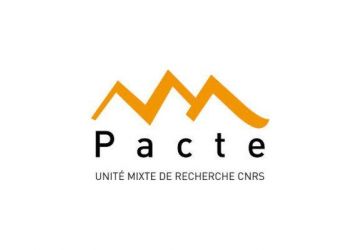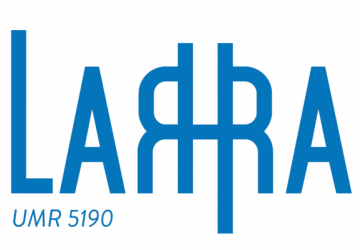Atelier de Réflexion Prospective
Workshop for Prospective Thinking on a future research programme in Moyenne and Haute Maurienne
Maurienne
Du 17/02/2016 au 01/06/2018

One of the issues for the scientific community is to foster the emergence of multidisciplinary, interdisciplinary and/or transdisciplinary approaches. This issue, sometimes presented as an injunction that runs counter to the traditional structuring of the research world, is nevertheless an exciting and important challenge, in particular when working on multi-faceted subjects such as the environment or the territory.
The viewpoint upheld for this workshop is that it is easier to establish interdisciplinarity, or even transdisciplinarity (i.e. the most ambitious forms of disciplinary blending) based on a common subject, one that is sufficiently well defined in order for the various communities to be able to refer to it and effectively work on the same platform, but also a subject that is sufficiently broad to accommodate an analysis via multiple facets and diverse disciplines.
The ARP (prospective thinking workshop) is organised around the geographical space of the Moyenne and Haute Maurienne, from Saint Jean de Maurienne to Bonneval. This territory benefits from a number of assets in relation to the proposed approach:
- Numerous researchers have already conducted investigations into many of its facets, in particular within the Grenoble-Alpes community;
- This is a mountain territory that has long been characterised by fairly diverse human activity;
- It is partly concerned by the Vanoise National Park, with all its implications in terms of tension between nature protection issues on the one hand, and social and economic issues on the other;
- It has been the scene of extreme events which raise the matter of its present and future resilience faced with proven risks.
Although conventionally projected as a homogeneous territory (the Maurienne valley), it is actually fairly disparate, comprising the valley itself, which is industrialised and contains heavy infrastructures, towns that lie higher up and which benefit from winter tourism, the Haute Maurienne and the Mont Cenis pass, and a historical crossing point to Italy that is somewhat landlocked at present. These disparities are therefore of a topographic, climatic, ecological and economic nature.
Among the research work conducted in recent years in Maurienne, the experiment conducted in the Aussois resort by some twenty researchers of various disciplines to establish the foundations of territorial ecology should serve as the core federator. The written work resulting from this undertaking lays down a number of methodological foundations that will foster an interdisciplinary approach to a common subject and a shared goal of understanding.
In parallel, an experimental project was initiated two years ago in the scope of LabEx ITEM with the town of Villarodin-Bourget and, more generally, with the Haute Maurienne. This project stems from a request by the town's municipal team to LabEx, but which is widely shouldered by the entire population, and has already led to two work sessions in 2014 and 2015 with undergraduates studying for a Master's degree specialised in the history of societies, and the production of posters and audio presentations for the benefit of the population. In a context of transitions that are either imposed (the law on territorial restructuring, the Lyon-Turin rail link project, etc.), accepted (land ownership) or anticipated (the resort's development), the populations of these towns – first among them Villarodin-Bourget – have decided to work alongside the LabEx researchers who are specialised in mountain territories. For these populations, with the help of an external perspective from researchers who share with them the knowledge of the territory's long and immediate history, the goal is to be able to understand their territory, analyse its strengths and weaknesses, and anticipate new orientations to continue to exist in these high valleys. Using micro-history methods, this global approach, intended to unify multidisciplinary approaches, falls within the underlying objectives of LabEx given the interdisciplinary character, the mutual undertaking of a project initiated by the territory's stakeholders, and the implementation objectives of the research. It connects with another research project concerning its cross-border aspects, and may benefit from the contribution of two dissertations in progress: one by LabEx, and one by Arc 7 on territorial dynamics, and from the Alpine arc's network of researchers.
The ARP workshop's requirements thus coincide perfectly with those of the "Chantier Maurienne" project within which it will operate.
As a result, the context is particularly suited to the emergence of a multi-year interdisciplinary and transdisciplinary programme with the aim of:
- Furthering the methodologies used to analyse a territory through its various ecological, spatial, temporal, economic and social facets;
- Establishing working habits and common references between disciplines and between broad disciplinary fields (human and social sciences, earth sciences, environmental sciences);
- Making it possible, based on this methodology, to establish territorial diagnostics to help the territory's stakeholders consider themselves and consider the future of their territory.
Institutions partenaires

Politiques Publiques – Action politique – Territoires (UMR 5194)
Porteur du projet

LAboratoire de Recherche Historique Rhône-Alpes (UMR CNRS 5190)
Partenariat scientifique

 Facebook
Facebook Forward
Forward Google+
Google+ LinkedIn
LinkedIn Twitter
Twitter



